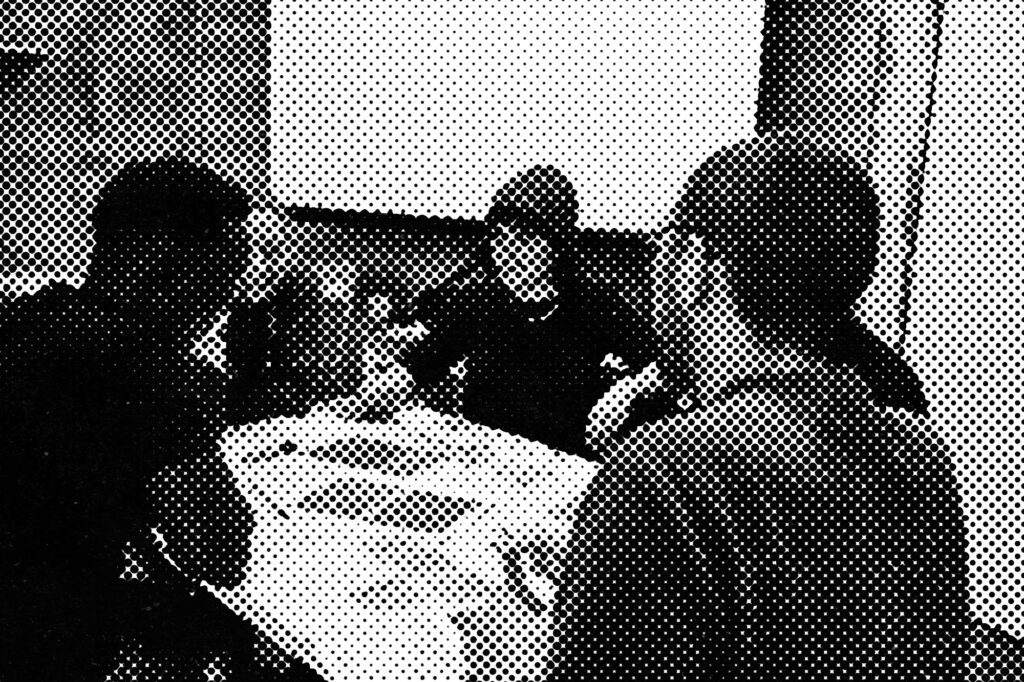
Workshop on humanitarian design – ENSCI Les Ateliers (2022)
- Project
Explore a preview of all the activities conducted during this intensive week-long workshop. Refer to the full report if you want to learn in detail the content of our course.
We would like to thanks the teachers: Thomas Jäger, Lison Guéguen, Gwenn Descamps, and Cédric Fettouche.
Table of Contents
Day 1: building trust and confidence
Our first interaction with the students was crucial and had four main goals. First, to get to know each other through icebreaking activities. Second, create a welcoming space for open discussion of sensitive topics. Third, empower everyone to contribute to group discussions by building the confidence that we all have valuable experiences and knowledge to share. Finally, provide a clear roadmap of the week. By achieving these goals, we set a positive and productive learning environment for the rest of the week.
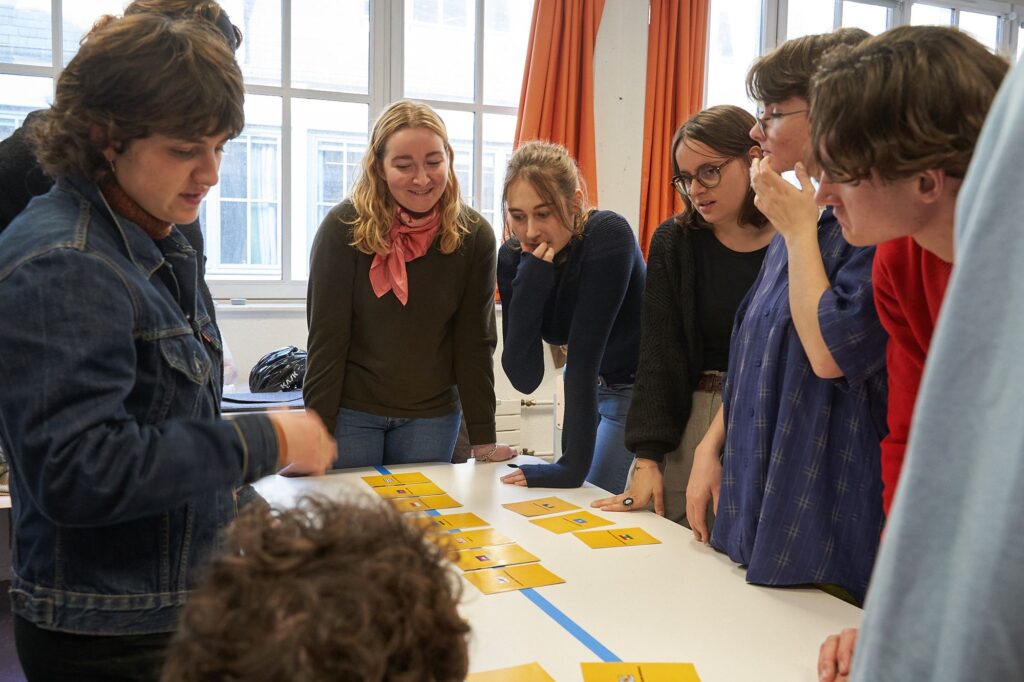
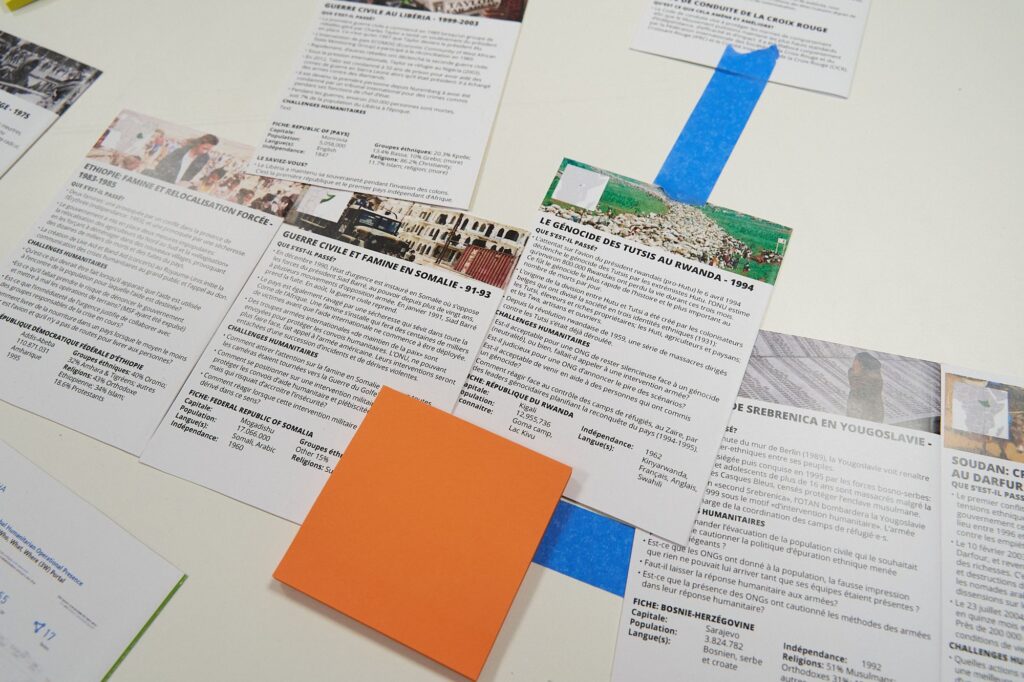
Day 2: What is humanitarian aid and humanitarian design?
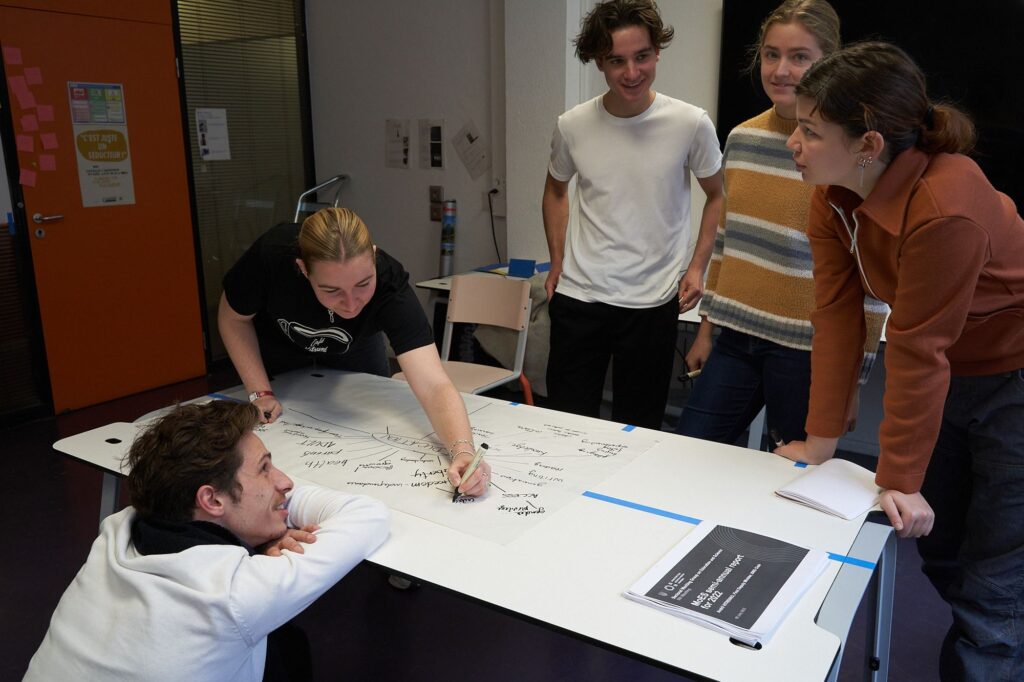
By using different techniques like mind-mapping, crafting, playing, interviewing, discussing, we assessed and mapped the similarities or differences of methodologies used by designers and aid workers. Students touched upon topics such as research, methods, operations, ideation, decision making, solution implementation, and evaluation.
To maintain a common thread throughout the day, we decided to focus on the activities of the Education humanitarian cluster in the context of the Russian invasion in Ukraine. They had the opportunity to listen to and question their assumptions by having an online discussion with a Manager from the German Red Cross.
All the insights were collected on a poster which facilitated our attempt to better understand and define the role of humanitarian designers.
Day 3: Workshop with the non-profit organisation Watizat
Watizat is a French non-profit organisation which advocates for access to information for people in exile in France. They are working in “Les Amarres”, a welcome centre coordinated by “Yes We Camp” in Paris. This Centre is hosting about 20 organisations working for and with people in situation of exile.
Together with the students, we went to Les Amarres, listened to Watizat challenges and crafted a three-hour workshop. In the afternoon, four employees and four users from Watizat participated in the World Café workshop facilitated by the students.
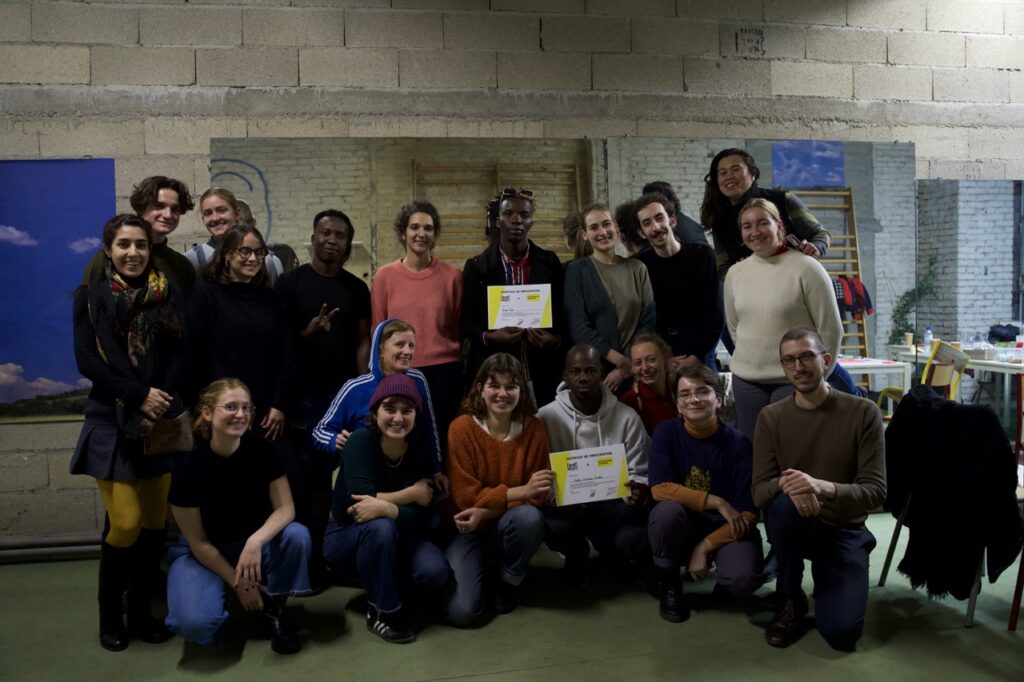
Day 4: ethics, communication, design fiction, design strategy
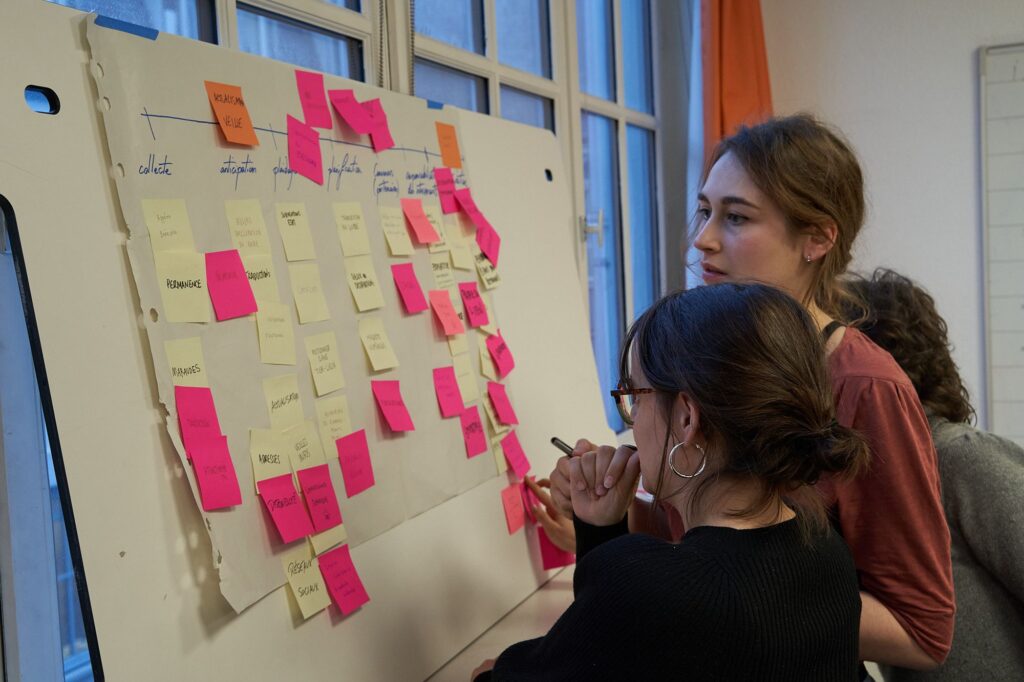
We started with a feedback round to debrief from the previous day. We watched videos and discussed on the importance of words, storytelling, and ethics in communication.
During the afternoon session, we focused on a design fiction exercise based on Watizat activities. This group exercise involved analysing what France’s future could look like in 2030 and how this could affect Watizat’s activities. The results were added to the report received by Watizat.
Day 5: how to start a journey as a committed design?
The last day of the event was planned as a relaxed moment to reflect on all the experiences we shared from this intense week. We rose awareness on the importance of always evaluating how an experience can support their future journey and help them to find a job that better fits their values.
After a shared lunch, we came back to Tuesday’s exercise in order to define the characteristics of a “humanitarian designer,” and we wrapped up Wednesday’s workshop by asking the students to write a debrief of their workshop with Watizat. We also made sure to allocate enough time for one-on-one mentoring sessions.
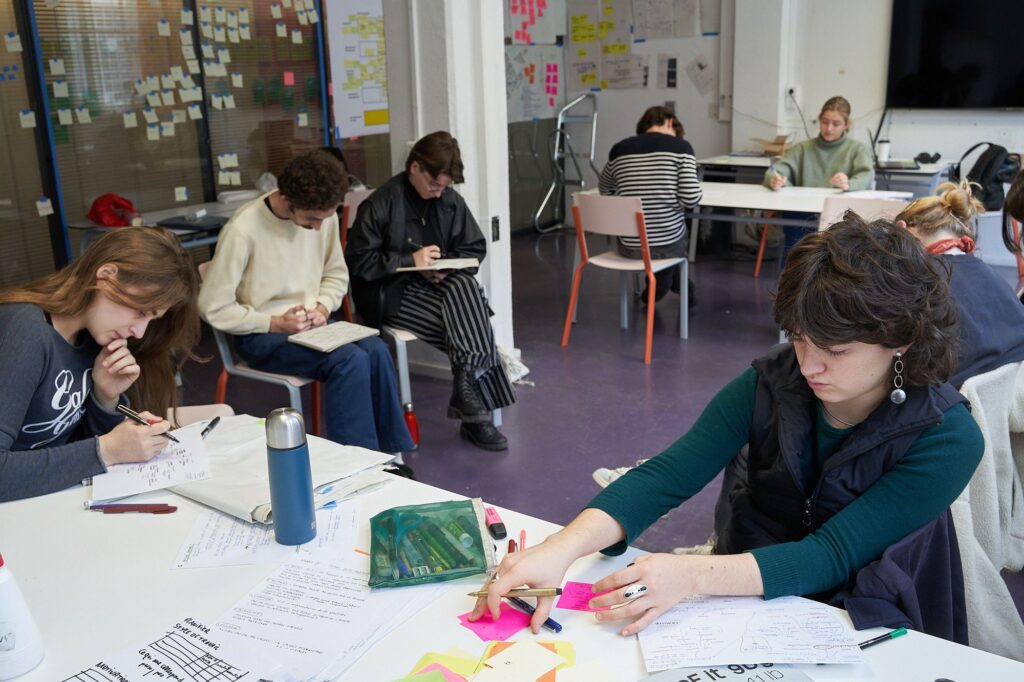
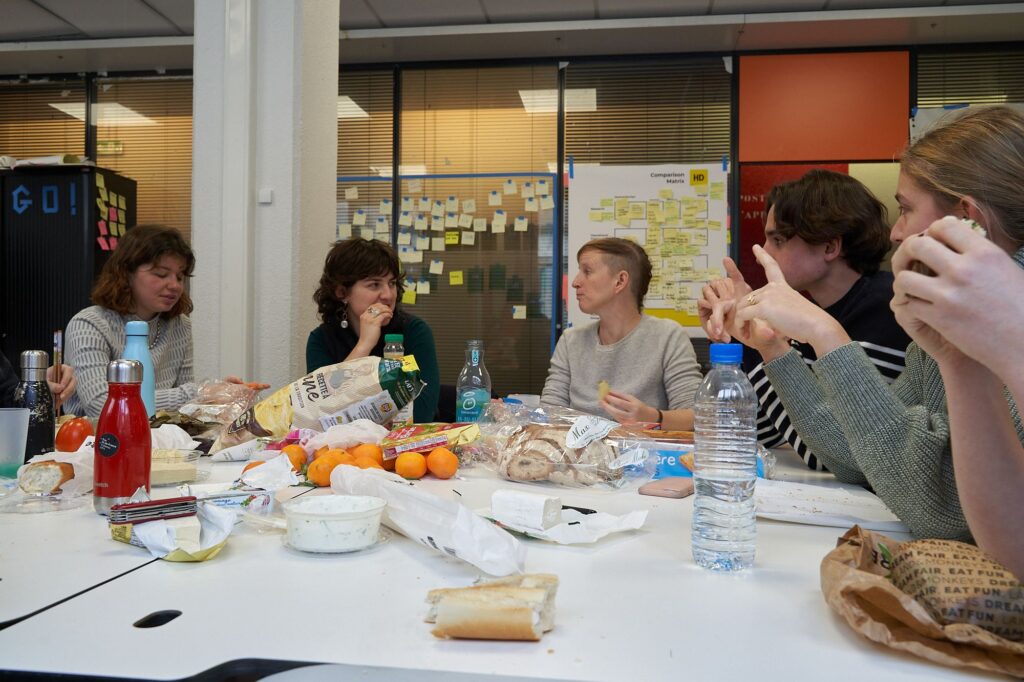
Read our Full Report
In this full report, you will find all the content that we have taught to the students, including thoughts and learnings on how we could improve our activities. It’s a practical reusable guide that will surely inspire you on the topic of humanitarian design.
Humanitarian Designers
INTERESTED IN PARTNERING WITH US?
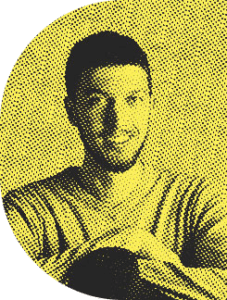
Cédric Fettouche
Cédric Fettouche works as a design strategist for the European Commission on the New European Bauhaus Initiative.
After three years of humanitarian experience in Greece and Central Mediterranean, he founded the NGO Humanitarian Designers (HD) in 2021 to bridge the gap between the design and humanitarian sectors.
Passionate about design and societal challenges, he strives to experiment his committed vision into new sectors, and share his learnings back to the design communities. You can contact him on Linkedin or on the HD Slack.
